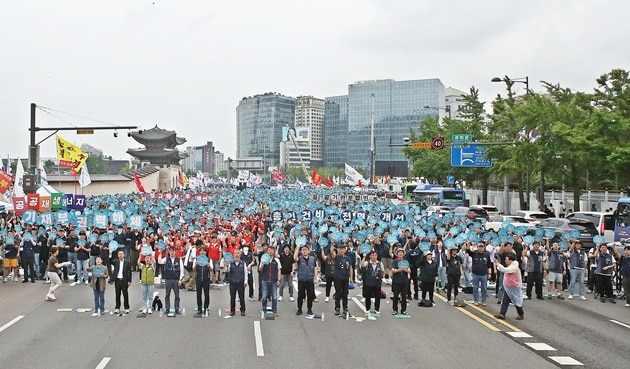UNI Africa charts course to Consolidate Working Class Power
27.06.25
The 6th UNI Africa Regional Conference concluded today with a renewed call to “Consolidate Working Class Power,” as union leaders from more than 50 UNI Global Union affiliates across Africa came together to elect new leadership and shape the movement’s strategy for the next four years.
Held during UNI Global Union’s 25th anniversary year, the conference brought together 230 participants from 22 countries to confront the urgent challenges facing workers – rising inequality, gender discrimination, technological disruption and crushing debt – while reaffirming organizing and collective bargaining as the path forward.
A movement with roots and vision
In his opening address, Amos Matsinhe, General Secretary of Mozambique’s SINECOSSE union credited UNI’s 40-for-40 campaign with helping women reach leadership positions, noting that his own union now has gender parity. He also praised UNI’s commitment to youth inclusion.
Reflecting on the past 25 years, UNI General Secretary Christy Hoffman said: “Our sectors have become the lifeblood of our organization. Our regions have become stronger and centres for ideas. Technology has enabled to work more closely today.
“We’ve shown our ability to transform along with the challenges of the but there are still challenges knocking on our door. Our legacy industries are changing – as they change, we must change. Building unions in new areas remains difficult but we have to keep at it.”
Stronger unions, deeper solidarity
Keith Jacobs, UNI Africa Regional Secretary, highlighted major achievements over the past four years, including organizing breakthroughs in Kenya’s security sector and Ghana’s healthcare sector, new affiliations in Côte d’Ivoire, Kenya and Tunisia, and the development of a 36-country DHL alliance. He also emphasized UNI Africa’s focus on gender equality, including campaigns for ILO Convention 190, mentoring programmes and incorporating parental rights into collective agreements.
A call to action
Joel Odigie, General Secretary of ITUC Africa, called for action, not lamentation. “The struggles in Africa are rooted in class, gender and race…Our decolonization struggle is not over,” he said. He stressed that building working class power in Africa depends on organizing, and outlined the ITUC’s campaign for debt justice in order to achieve equality and social protections for all.
The conference also heard from representatives of UNI affiliates, Handels (Sweden), PAM (Finland) and Unionen (Sweden) as well as solidarity organizations SASK (Finland) and the International Federation of Workers Education Associations. They have been strong supporters of union building and gender equality projects across UNI sectors.
PAM’s Mari Taivainen warned how quickly progress can be reversed, citing the erosion of union rights under Finland’s right-wing government, and Simião Simbine, Regional Representative of SASK, emphasized that solidarity is only natural because, “We are part of the same global movement.”
UNI Deputy General Secretary Alke Boessiger presented UNI’s Human Rights Due Diligence Competence Centre, aimed at helping unions use new legal tools to hold corporations accountable and support organizing across global supply chains.
Facing the future
A major theme was the transformative impact of artificial intelligence. Molly Kinder, a Brookings Metro Fellow, warned:
“Big Tech is trying to create Gen AI that wants to match all human cognitive ability. It is imperative that we accept this is happening. We need to take seriously that disruption is coming. We cannot be ostriches with our heads in the sand. I’m more worried about our lack of vision and responsiveness than I am about the tech itself. It’s big, it’s transformative, but it’s not all bad. There will be new jobs. Let’s make them union jobs. Trade unions must be at the table.”
Coming just a week after the launch of global health and safety standards by UNI’s Global Trade Union Alliance of Content Moderators, Asma Ghanmi (FGNTS UGTT, Tunisia) explained the extensive list of psychological and physical impacts of moderating harmful content, including anxiety, depression and even suicidality – emphasizing the need for tech companies to ensure the safety of the workers in their supply chain.
Women and youth
The following day, the conference began with reports from youth and women. Newly elected UNI Africa Youth President Crisnelda Nhamucale (SINECOSSE, Mozambique) highlighted mentorship, climate justice, youth employment and representation as key themes from the youth conference, presenting a five-point action plan.
UNI Africa Women’s President Pauline Sawadogo (SYNATEL, Burkina Faso) outlined goals from the women’s conference, including mainstreaming gender equality, advancing women’s health, enforcing the 40 per cent representation rule, promoting ILO C190 and expanding the Mentoring Program to support more women leaders.
Participants at the conference also showed their strong solidarity with the people of Palestine.
The conference adopted four motions that will guide UNI Africa’s actions over the next four years.
- Continue to build Collective Bargaining Power through organizing
- Towards a just transition in the era of Artificial Intelligence
- Towards Gender Equality and the Inclusion of Young Workers
- Towards UNI Africa’s response to the debt crisis in Africa
The conference ended with the election of new leadership. Affiliates voted for a new UNI Africa Executive Committee, for the period 2025 to 2029, while Oyinkan Olasanoye (ASSBIFI, Nigeria) was unanimously elected President of UNI Africa. She pledged to work tirelessly to work with the affiliates to fulfil UNI’s action plan.
Keith Jacobs was enthusiastically re-elected as Regional Secretary, and began his acceptance speech calling for peace:
“We live in a troubled world. We experience several conflicts in our continent, including a devastating war in Sudan. Globally we saw an increase of wars…and an escalation of the conflict in the Middle East that is bringing the region to the brink of an all-out regional war,” said Jacobs, adding: “We want to see an end to all these wars and conflicts.”
Wrapping up two days of discussion, strategy and solidarity, Keith Jacobs concluded: “This conference sets a clear path going ahead…Working together with our affiliates, we will consolidate working class power to ensure a better deal for workers and their families.”
Mozambique
UNI Africa


